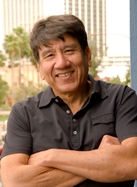
Randy Cohen
Top 10 Reasons to Support the Arts in 2015
Posted by Mar 13, 2015

Randy Cohen
With the arts advocacy season fully upon us, the following is my updated “10 Reasons to Support the Arts.” Changes this year include updating #3 with the BEA’s new Arts in the GDP research, #8 to include a statement about the benefits of the arts in the military, and #10 includes the new Creative Industries data (now current as of January 2015).
This is just one of many arrows to include in your arts advocacy quiver. While it’s a helpful one, we know there are many more reasons to support the arts. What are yours? Please share your #11 (and more!) in the comments section below. What a great collection we can build together.
Please feel to share and post this as you like. You can download a handy 1-pager here.
Read More













